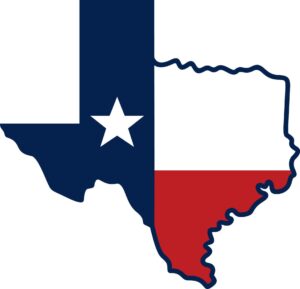 Driving in Texas can feel like an adventure. Whether you’re cruising along bustling city streets, coasting down rural highways, or navigating traffic on major interstates, there’s always something to keep you on your toes. But let’s be honest, while the Lone Star State offers some beautiful drives, it also has its fair share of road hazards. And when accidents happen, they don’t just take a toll on your vehicle but also on your peace of mind and your wallet.
Driving in Texas can feel like an adventure. Whether you’re cruising along bustling city streets, coasting down rural highways, or navigating traffic on major interstates, there’s always something to keep you on your toes. But let’s be honest, while the Lone Star State offers some beautiful drives, it also has its fair share of road hazards. And when accidents happen, they don’t just take a toll on your vehicle but also on your peace of mind and your wallet.
So, how can you protect yourself and your loved ones while driving across Texas’s vast terrain? This guide has everything you need to know to steer clear of costly car accidents and stay safe on the road.
Understanding Texas Road Conditions
Let’s kick things off with the basics, Texas is huge, and its roads reflect that. You’ve got everything from congested highways in Dallas to dusty country roads out west. And while it’s nice to have that variety, it also means drivers face a wide range of challenges.
City driving can be fast-paced and a little chaotic, especially during rush hour. Rural roads? They come with their own set of hazards, think unexpected wildlife or farm equipment. Then there’s the unpredictable weather. Texans know that one minute you’re basking in sunshine, and the next, you’re caught in a torrential downpour. These factors all contribute to the potential for accidents, so understanding what you’re up against is the first step to staying safe.
Stay Alert: Why Defensive Driving is Key
Have you ever heard the phrase, “Drive like everyone else on the road is crazy”? It might sound funny, but it’s not far from the truth. Defensive driving is all about staying alert and anticipating what other drivers might do. It’s not about paranoia—it’s about preparation. You can’t control how others drive, but you can control your reactions.
One key tip? Always stay focused. It’s easy to get distracted by your phone, music, or even your own thoughts. But taking your eyes off the road, even for a split second, could lead to an accident. Keep your hands on the wheel, your eyes on the road, and your mind in the game. Trust me, your future self will thank you.
Common Accidents and How to Avoid Them
Accidents come in all shapes and sizes, but some types are more common than others. Whether you’re driving with full coverage or just looking for the best cheap car insurance in Texas, avoiding these common accident types will not only protect you on the road but also help keep those insurance premiums in check. Here’s how to avoid a few of the big ones:
– Rear-End Collisions: Ever been stuck behind someone who slams on their brakes unexpectedly? Yeah, it’s the worst. To avoid rear-ending someone, keep a safe following distance. A good rule of thumb is the “three-second rule”, leave at least three seconds between you and the car in front of you. And if you’re distracted, that gap needs to be even bigger.
– Intersection Accidents: Intersections can be tricky. Drivers run red lights, fail to yield, or speed through turns. Approach every intersection cautiously, even if you have the right of way. Remember, it’s better to lose a few seconds than to get into an accident.
– Lane-Change Crashes: These happen when drivers fail to check their blind spots or signal before switching lanes. Avoid these by using your mirrors, checking over your shoulder, and signaling well in advance. Make sure the lane is clear before you move.
By staying mindful of these common accidents, you’ll drive more safely and help secure better rates on your insurance.
Handling Texas-Specific Road Hazards
Texas roads aren’t just about traffic and other drivers. The environment plays a big role in road safety, too.
– Adverse Weather: Whether it’s a heavy rainstorm or dense fog, Texas weather can turn dangerous fast. In the rain, slow down and increase your following distance, wet roads make it harder to stop. If you’re driving through fog, use your low beams (not high beams, which can reflect off the fog) and keep your speed under control.
– Nighttime Driving: Driving at night means reduced visibility and an increased chance of encountering tired or impaired drivers. To stay safe, make sure your headlights are in good working order and drive a bit slower than usual. Also, watch out for wildlife, especially in rural areas.
– Wildlife Encounters: Speaking of wildlife, Texas is home to all sorts of creatures, big and small. If you spot an animal on the road, don’t swerve. It’s tempting, but swerving can cause you to lose control of your vehicle or veer into oncoming traffic. Instead, brake firmly and keep a straight path.
The Role of Vehicle Maintenance in Accident Prevention
Think vehicle maintenance is no big deal? Think again. Neglecting your car’s basic upkeep can lead to major problems down the road.
For example, worn-out brakes can increase your stopping distance, making rear-end collisions more likely. Low tire tread can cause you to lose control in wet conditions. And dim or broken headlights make it harder for other drivers to see you. Regular maintenance checks can help you avoid these issues. So, before you hit the road, give your car a once-over, check the tires, brakes, lights, and fluid levels.
Avoiding Driver Fatigue and Distraction
We’ve all been there: It’s late, you’re tired, but you’re still trying to push through and make it home. Or maybe you’re tempted to reply to a quick text while driving. These may seem like small risks, but they can lead to big problems.
Fatigue is a serious issue on the road. Drowsy driving is just as dangerous as drunk driving, it slows your reaction times and impairs your judgment. If you feel yourself getting tired, pull over and take a break. A short rest can make a big difference.
And when it comes to distractions, the best solution is prevention. Avoid using your phone while driving, if you must, use a hands-free device. Set up your GPS and music before you start driving. A little planning goes a long way in helping you stay focused.
Insurance Considerations for Texas Drivers
Let’s talk insurance for a second. I know, it’s not the most exciting topic, but it’s important. As a driver in Texas, having the right insurance coverage is essential. Not only does it protect you financially in the event of an accident, but it can also give you peace of mind knowing that you’re prepared for the unexpected.
While being a safe driver can help you avoid accidents, having solid coverage ensures that if something does happen, you’re not left footing the bill for repairs, medical costs, or worse. It’s worth taking the time to review your policy and ensure you’re adequately covered for Texas’s unique driving challenges.
What to Do If an Accident Happens
No matter how careful you are, accidents can still happen. If you’re ever involved in one, it’s important to stay calm and follow these steps:
- Check for injuries and make sure everyone is okay.
- Move to a safe location if possible, but don’t leave the scene.
- Call the authorities even for minor accidents, it’s a good idea to have a police report for insurance purposes.
- Document everything: Take pictures of the scene, get witness information, and exchange insurance details with the other driver.
- Contact your insurance provider to report the accident and start the claims process.
Having the right coverage means you won’t have to stress about the financial aftermath, allowing you to focus on what’s most important, staying safe and healthy.
Conclusion
Safe driving in Texas doesn’t have to be complicated. By staying alert, practicing defensive driving, maintaining your vehicle, and being prepared for Texas’s unique road conditions, you can greatly reduce your chances of being involved in a costly accident. And if something does go wrong, having the right insurance coverage will help protect you from unexpected expenses.
So, the next time you hit the road, ask yourself: Am I driving defensively? Is my car in good shape? What’s my backup plan if something goes wrong? By thinking ahead, you’re setting yourself up for safer and less stressful trips across the state.
Stay safe out there, Texas!





